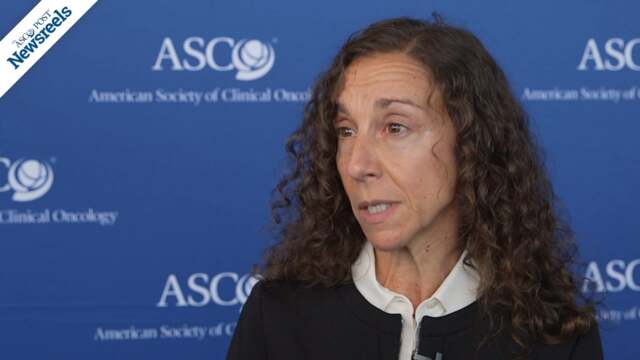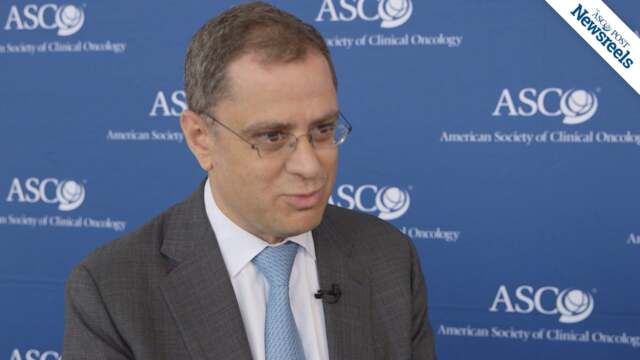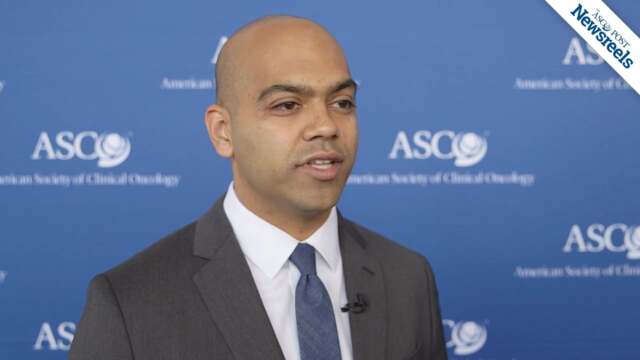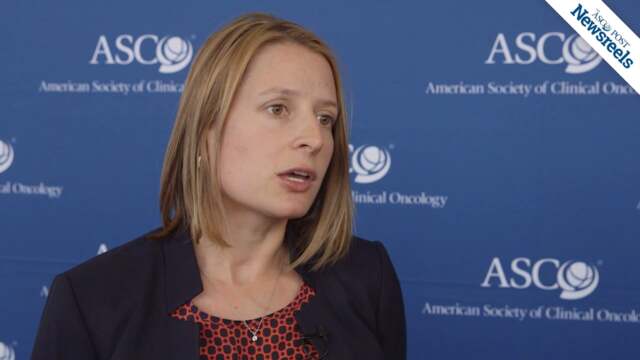Hope S. Rugo, MD, on HER2+ Breast Cancer: Findings on a Trastuzumab Biosimilar
2016 ASCO Annual Meeting
Hope S. Rugo, MD, of the University of California, San Francisco, discusses phase III study results on a new possible alternative to trastuzumab for HER2-positive metastatic breast cancer: the biosimilar known as Myl-1401O (Abstract LBA503).
Julie R. Park, MD, of Seattle Children’s Hospital, discusses findings from this phase III trial of tandem myeloablative autologous stem cell transplant using peripheral blood stem cell as consolidation therapy for high-risk neuroblastoma (Abstract LBA3).
Arjun Vasant Balar, MD, of the Perlmutter Cancer Center at NYU Langone Medical Center, discusses findings on atezolizumab as first-line therapy in cisplatin-ineligible locally advanced/metastatic disease (Abstract LBA4500).
Ghassan K. Abou-Alfa, MD, of Memorial Sloan Kettering Cancer Center, discusses findings of this phase III study of sorafenib plus doxorubicin versus sorafenib in patients with advanced hepatocellular carcinoma (Abstract 4003).
Nikhil Wagle, MD, of the Dana-Farber Cancer Institute, discusses the strides made in this national direct-to-patient initiative to accelerate genomics research (Abstract LBA1519).
Maria Clemence Schwaederle, PharmD, of the University of California, San Diego, discusses an analysis of 13,203 patients in phase I clinical trials, which showed that a personalized strategy led to improved response rate and progression-free survival (Abstract 11520).





